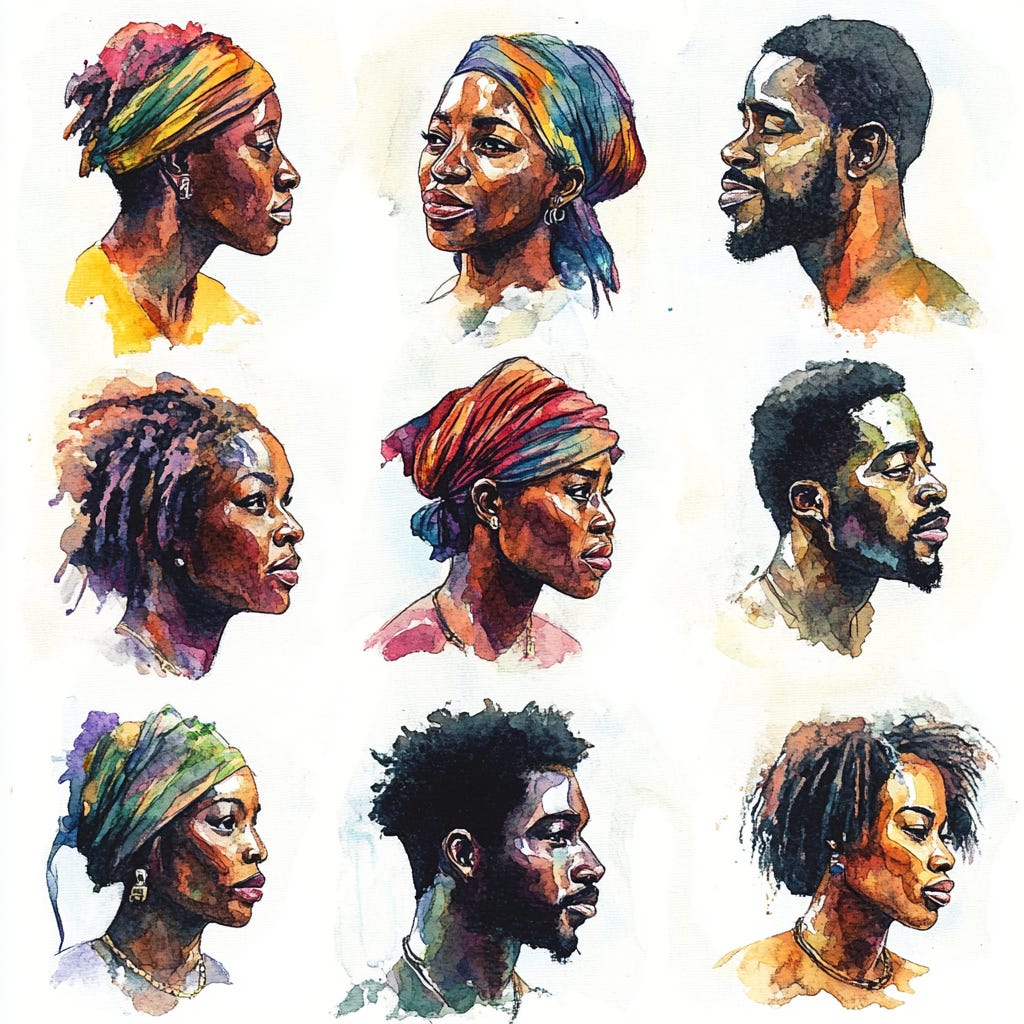
Introduction: The Cultural Divide Between FBAs and Black Immigrants
The cultural divide between black immigrants and Foundational Black Americans (FBAs) has existed for decades, driven largely by a sense of superiority that many black immigrants and their descendants harbor. Often, these immigrant groups consider themselves more driven, educated, and successful than FBAs, citing their ability to "pull themselves up by the bootstraps" despite arriving in the U.S. with fewer resources.
But here's the irony: while these immigrants have long distanced themselves from FBAs, they are now finding themselves needing support in the face of negative perceptions. Recently, Haitian immigrants, in particular, have been hit with rumors and accusations regarding their eating habits—namely, the absurd stereotype of "cat-eating." As these rumors spread, suddenly these black immigrant groups want FBAs to come to their defense, eager to form a united front against such stereotypes. But for FBAs, the hypocrisy is too glaring to ignore.
Section 1: The Superiority Complex of Black Immigrants
Let’s start with the uncomfortable truth: many black immigrants, especially those from African and Caribbean countries, have historically viewed themselves as “better” than FBAs. This attitude is rooted in both cultural differences and a false narrative that black immigrants work harder or value education more than FBAs. According to a Pew Research Center report, 51% of African immigrants in the U.S. hold a college degree, compared to only 32% of U.S.-born African Americans. These stats have fueled the belief that immigrants "know how to succeed" in America, while FBAs are seen as unmotivated or lazy.
However, this perception overlooks the deep history of systemic racism and oppression that FBAs have endured for centuries. From slavery and Jim Crow to redlining and mass incarceration, FBAs have faced structural barriers that many immigrants never had to deal with in their home countries. This isn’t to say that black immigrants haven't faced challenges—they absolutely have. But it’s disingenuous to claim superiority when many black immigrants and their descendants have benefited from the civil rights victories fought for by FBAs.
Section 2: The Irony of Fleeing Failed Homelands
Now let’s talk about the elephant in the room: black immigrants fled their own countries for a reason. While many black immigrants view themselves as superior to FBAs, the fact is that their own homelands are often wracked by poverty, corruption, and instability—issues that forced them to leave in the first place.
For example, Haiti, a country with a rich history of resistance, has faced decades of political unrest, economic decline, and environmental disasters. Nigeria, one of the largest sources of African immigrants, is grappling with widespread corruption, terrorism, and extreme wealth inequality. It’s worth asking: If these immigrants are so much "better" than FBAs, why did they flee their own countries for a better life in America—a life largely made possible by the struggles of FBAs?
FBAs didn’t get the option to flee when things got tough. They had to endure slavery, segregation, and systematic oppression without the opportunity to escape. So, when black immigrants look down on FBAs while benefiting from the civil rights battles fought by the same people they despise, it’s more than just hypocrisy—it’s a deep historical irony.

Section 3: The Cat-Eating Allegations and Sudden Need for Unity
Recently, Haitian immigrants have been targeted with absurd allegations—accusations of "cat-eating" that have begun to spread like wildfire on social media. Whether or not these allegations have any basis in reality, the stereotype is harmful, xenophobic, and dehumanizing. But here's the kicker: now that Haitian immigrants are facing backlash, they are suddenly looking to FBAs for support, calling for unity among all black communities in the face of these attacks.
It's important to stand against harmful stereotypes and xenophobia, but let’s not ignore the elephant in the room. For years, many Haitian immigrants have held themselves above FBAs, viewing them as "less than." They wanted nothing to do with the FBA struggle until now, when their own community is facing the heat. As an FBA, it’s hard not to see the irony in this. The same people who distanced themselves from our struggles are now calling for unity because they need us to help them combat negative stereotypes.
Conclusion: Unity Without Accountability? No Thanks
While there’s a call for unity among black communities in the face of xenophobic attacks, it’s hard to ignore the long-standing divide between black immigrants and FBAs. If black immigrants want solidarity, they need to acknowledge the superiority complex that has long existed and take accountability for the way they have distanced themselves from the FBA struggle.
Until then, it’s difficult to stand shoulder to shoulder with people who only want unity when it benefits them. Respect has to be a two-way street.
If you’re an FBA who’s tired of this hypocrisy, share this post and let’s start a conversation about why solidarity has to be built on mutual respect—not just convenience.
#FBA #BlackImmigrants #HaitianAllegations #SolidarityOrHypocrisy #TruthBombs #CulturalDivide #BlackUnity




Leave a comment
All comments are moderated before being published.
This site is protected by hCaptcha and the hCaptcha Privacy Policy and Terms of Service apply.